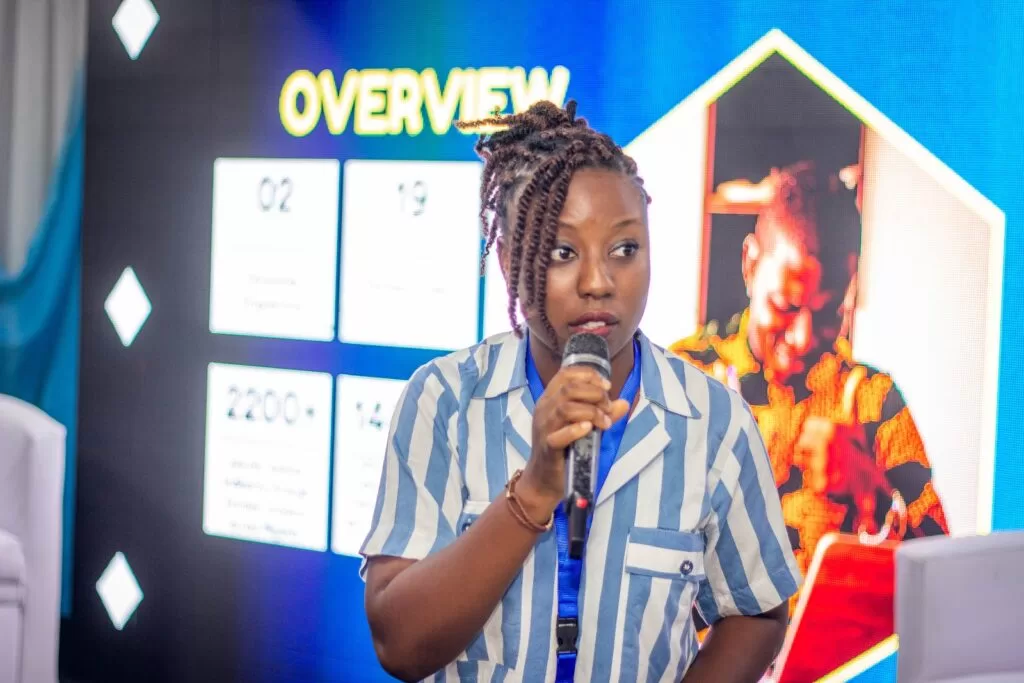As the world of journalism continues to evolve, technology is fast transforming the way stories are told to the public, who rely on on the media to make informed decisions. HumAngle, Africa’s leading conflict, humanitarian, and development media organisation, brought together journalists, media professionals, and stakeholders for the #HumAngleShowcase24 event in Abuja on Saturday, Nov 30.
The showcase highlighted the outlet’s innovative storytelling techniques and tech-driven solutions for promoting accountability and transparency in journalism.
According to Ahmad Salkida, HumAngle’s Founder and Editor-in-Chief, the event is a platform for the organisation to showcase its work and an opportunity for other partners to do the same. “All over the world, the media landscape is undergoing a change. Some of that change is structural and some of it has to do with adapting to the changing dynamics of civilization and society’s understanding of and interaction with news,” he said. “Especially in the face of things like AI, shrinking media funding, and threats to democracy. We are deeply committed to exploring all the possible ethical ways that news can exist and be consumed.”
During the event, HumAngle’s Managing Editor, Hauwa Shaffii Nuhu, discussed the publication’s work as a niche publication at a critical time in Nigeria’s democracy, especially with the rising insecurity and humanitarian crisis. She also highlighted how crucial support is from organisations like the MacArthur Foundation and other donor organisations.
Angela Umoru-David, Director of the HumAngle Foundation, a sister-organisation of the HumAngle Media, highlighted the success stories of the foundation, including its fellowship programmes, that have focused on telling hyperlocal stories for civic participation and impact.
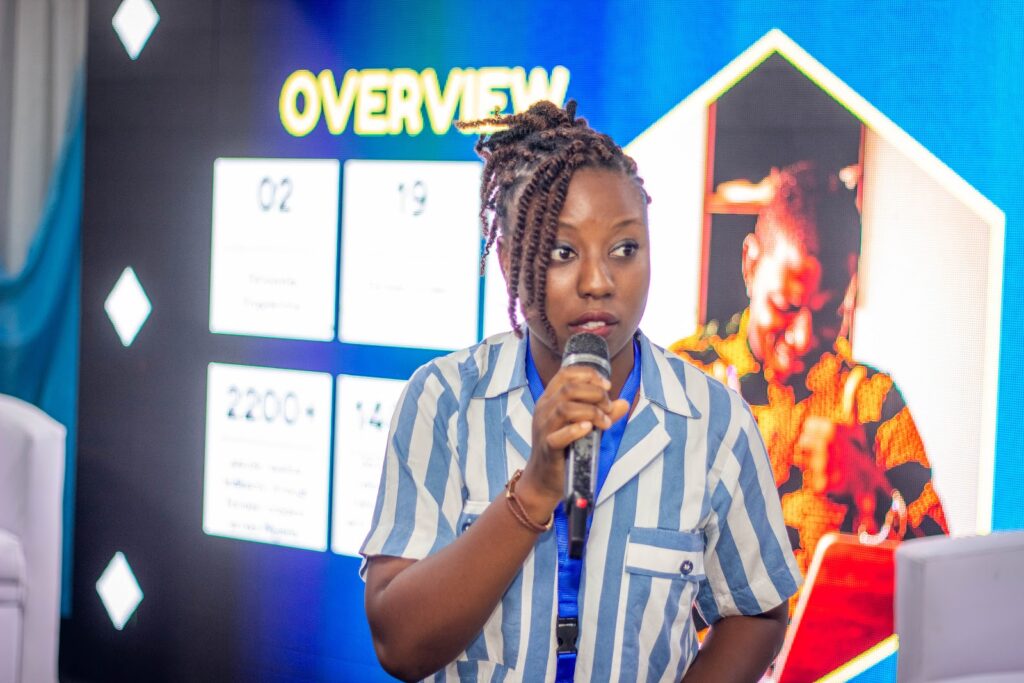
Tech-driven solutions for accountability
A key theme at the event was the role of the media and technology in promoting transparency and accountability. Two insightful panel discussions brought experts who shared their insights and experiences on the challenges and opportunities facing accountability journalism in the country.
During one of the panels, Akintunde Babatunde of the Centre for Journalism Innovation and Development (CJID) discussed how his organisation has been leveraging technology to drive accountability, transparency, and development across Africa.
“Since 2014, the CJID has consistently addressed some of the most pressing challenges facing journalism and governance through innovative platforms that drive accountability, transparency, and media resilience,” he said. “For young campus journalists, we created Campus Reporter, a platform designed to guide and empower them to craft compelling stories while holding power to account.”
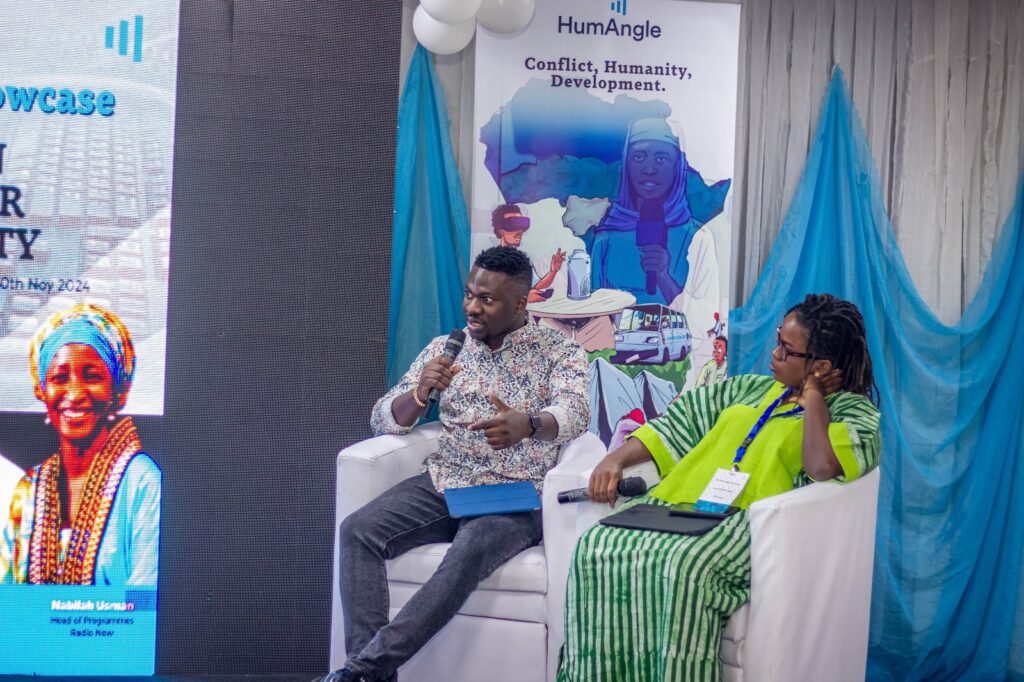
“Through Udeme.Africa, we provide a resource to track the disbursement and utilisation of funds meant for development projects in Nigerian communities,” Akintunde added.
He also mentioned Dubawa, a CJID platform tackling the growing threat of disinformation, and Press Attack Tracker, which monitors attacks on journalists and has documented over 1,300 verified incidents since 1980.
Akintunde said reflecting on how these tools have driven good governance and development over the past decade was deeply rewarding.
On her part, Lucy James Abagi, CEO of the Public and Private Development Centre (PPDC), also explained the processes they use to verify data to track human rights issues.
“We have hundreds of people trained to track police activities in different stations to collate data on human rights issues,” she said. “We also do prison audits to ensure we have accurate data on the issues affecting the judiciary.”
Joshua Olufemi, Founder and CEO of Dataphyte, highlighted the challenges agencies face in using technology to drive positive changes in Africa.
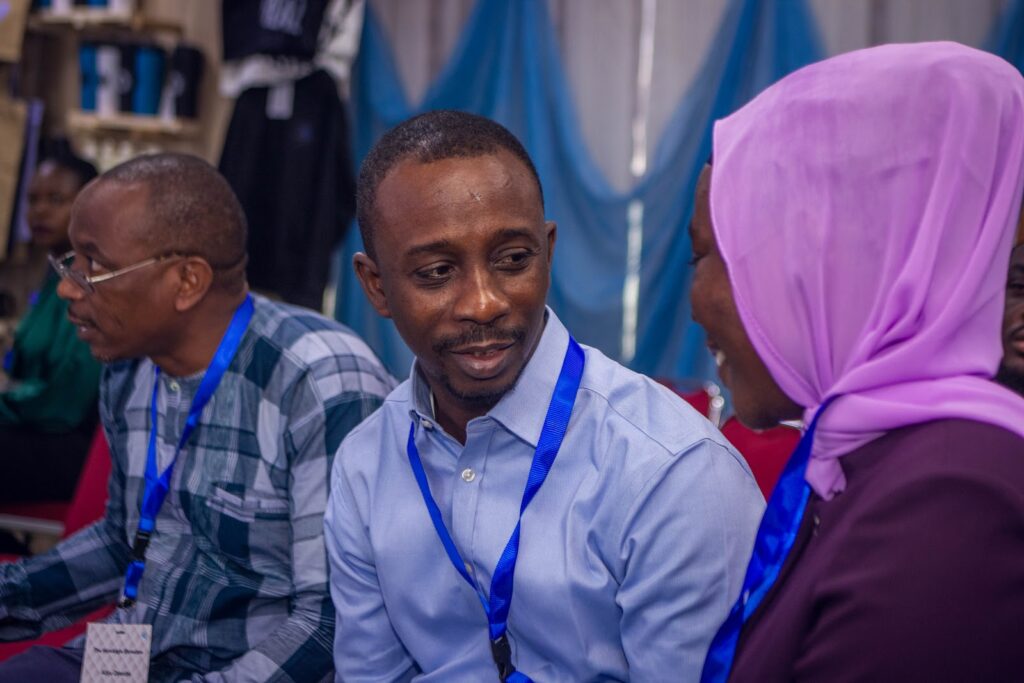
“While we use technology to drive accountability, the challenge is that we lack access to data to make impactful policies,”. Olufemi said. “So, we have invested heavily in the use of technology to build people’s capacity in the media space and some artificial intelligence tools to help gather necessary data to make informed decisions.”
Reinventing journalism in the age of AI
The second panel, moderated by Hauwa Shaffii Nuhu, featured HumAngle’s editorial team members: Adejumo Kabir, Southern Operations Editor and Anthony Asemota, Multimedia Editor, alongside Kunle Adebajo, former Investigations Editor at HumAngle and now with Code for Africa.
They explored the future of journalism in the age of artificial intelligence (AI), and how the technology is impacting journalism practices.
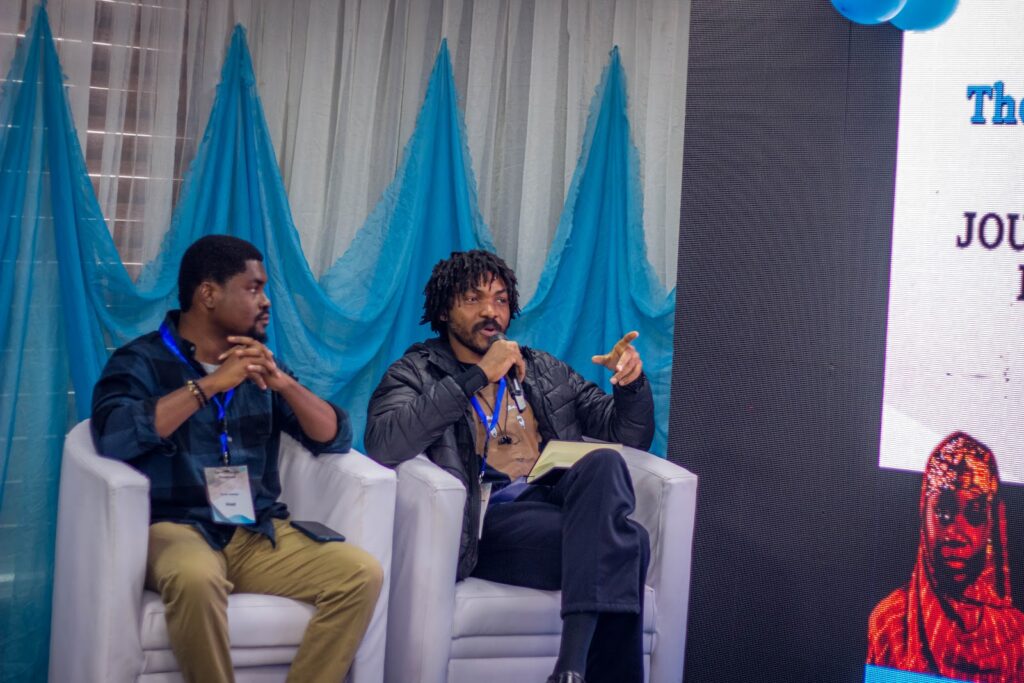
Dr Amina Salihu from the MacArthur Foundation praised HumAngle for building a framework to navigate the complexities of AI in journalism. “It’s impressive to see that at a time when governments and institutions are still trying to understand AI, HumAngle has already built a framework to guide their use and interaction with it,” she said.
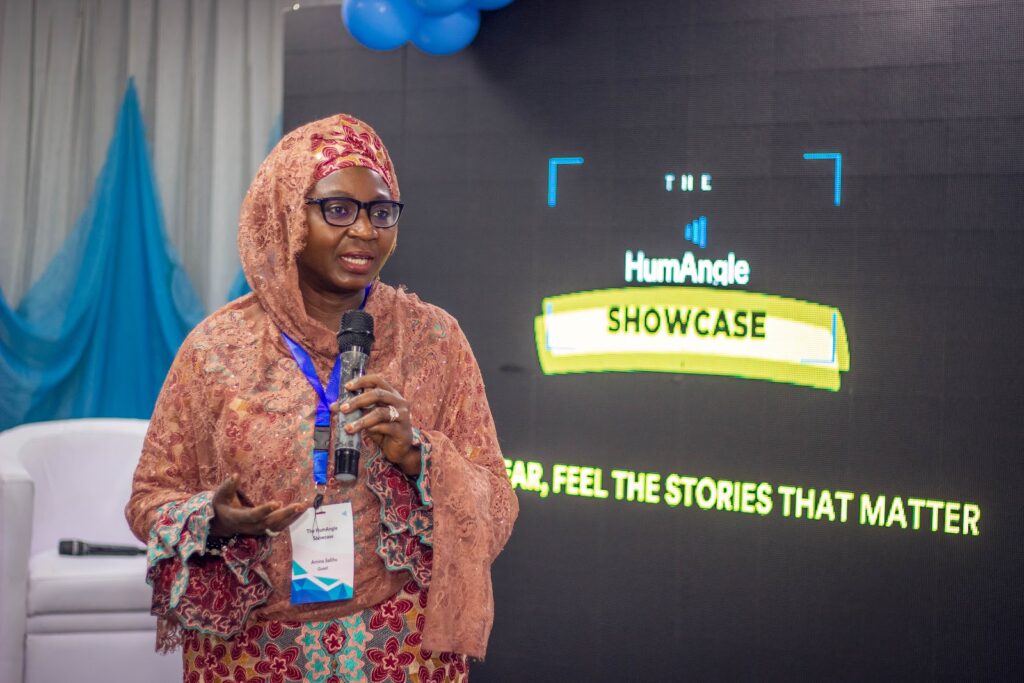
Impacts
HumAngle presented some of its most impactful stories during the showcase, including investigations, features, podcasts and documentaries. The showcased reports demonstrated the organisation’s commitment to in-depth reporting and its ability to highlight critical issues affecting Africa.
One of the investigations covered the plights of some Nigerians trafficked to Egypt for forced labour. Kabir, who led the report, highlighted how it spurred public debates and intervention by the National Agency for the Prohibition of Trafficking in Persons (NAPTIP), which secured the release of some of the victims. “We are happy that the report did not only help to inform the public about the struggles of Nigerians suffering in Egypt, but it triggered public debates and engagement from necessary authorities. Today, we have some of the people who spoke with us back in Nigeria, and the local authorities are supporting them,” he explained.
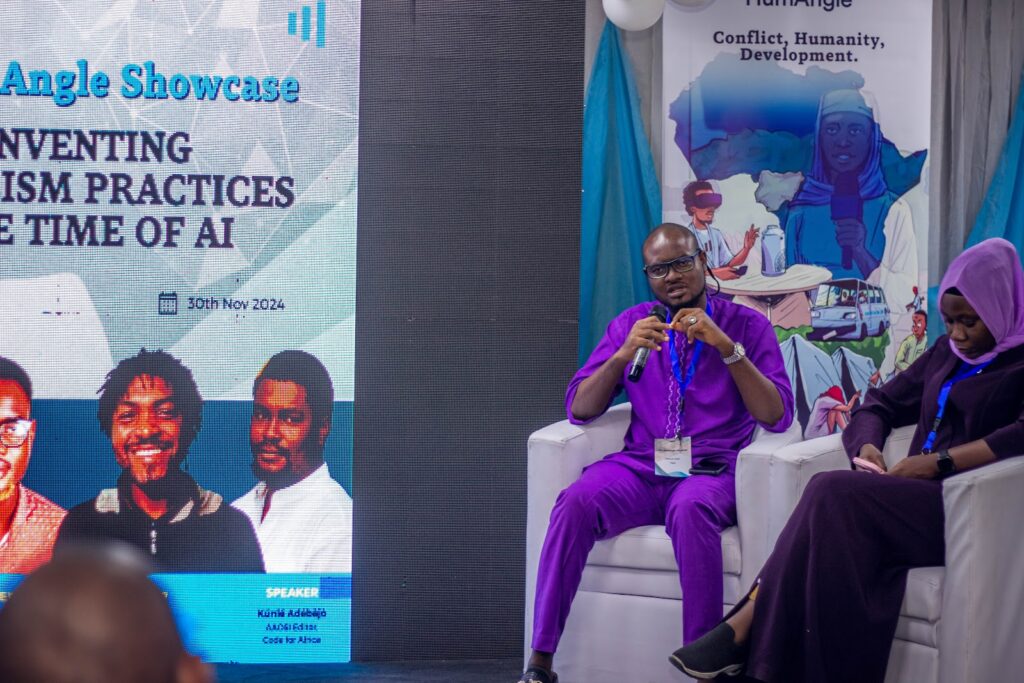
The event also featured a documentary on the abduction of students from Federal Government College, Birnin Yauri, Kebbi State. Speaking about the impact of the documentary in a question and answer session moderated by Shade Mary-Ann Olaoye, HumAngle’s Audience Engagement Lead, Hauwa revealed that some of the girls highlighted in the film had been returned to school, although significant challenges remain.
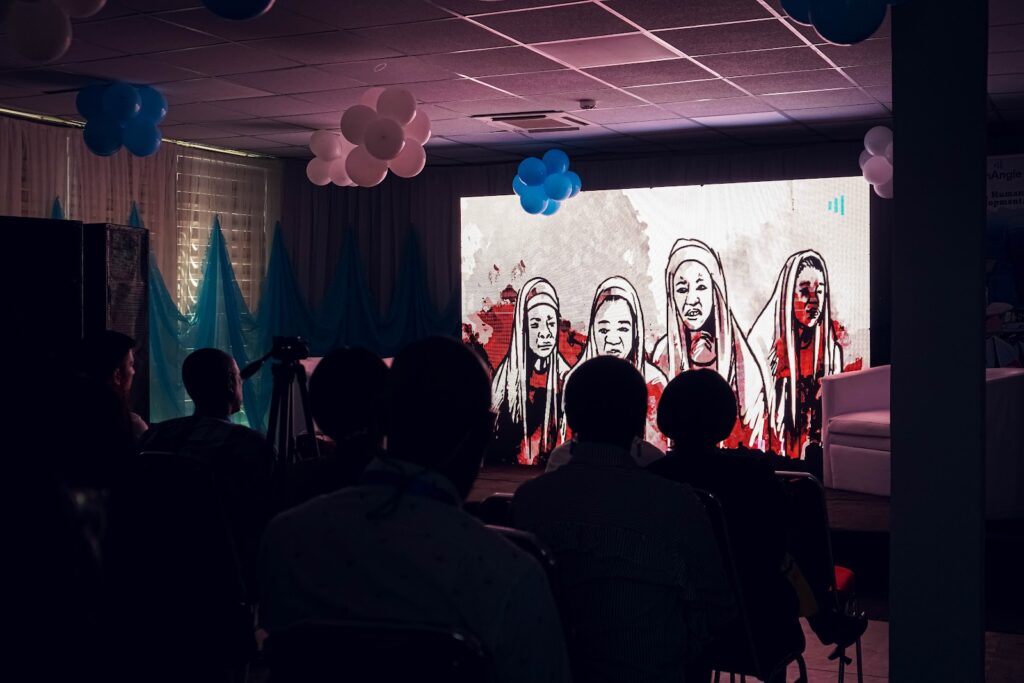
Though she explained that a lot is still expected to be done, HumAngle will continue to tell stories on the aftermath of war crimes in the country. Hauwa also emphasised the media house’s dedication to innovative storytelling and investigative journalism.
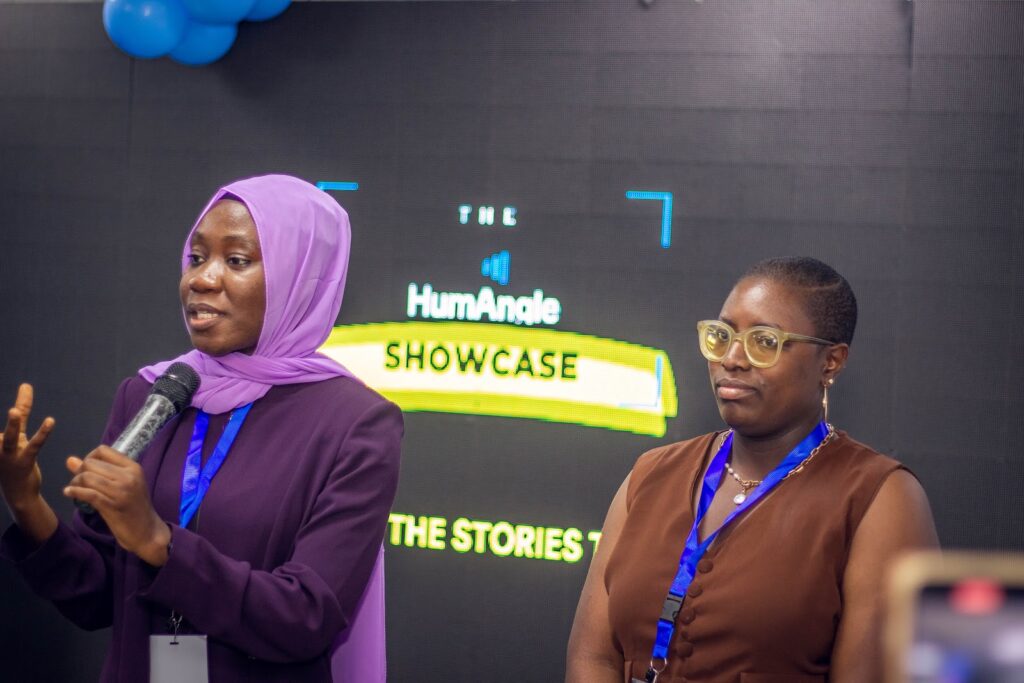
“We are not just telling stories but also holding those in power accountable for their actions and inactions,” she added.
‘HumAngle should be supported’
MacArthur Foundation’s Director in Nigeria, Dr Kole Shettima, commended HumAngle’s contributions to journalism. He expressed his excitement about being part of the success stories of the publication and encouraged more partners to support the newsroom.
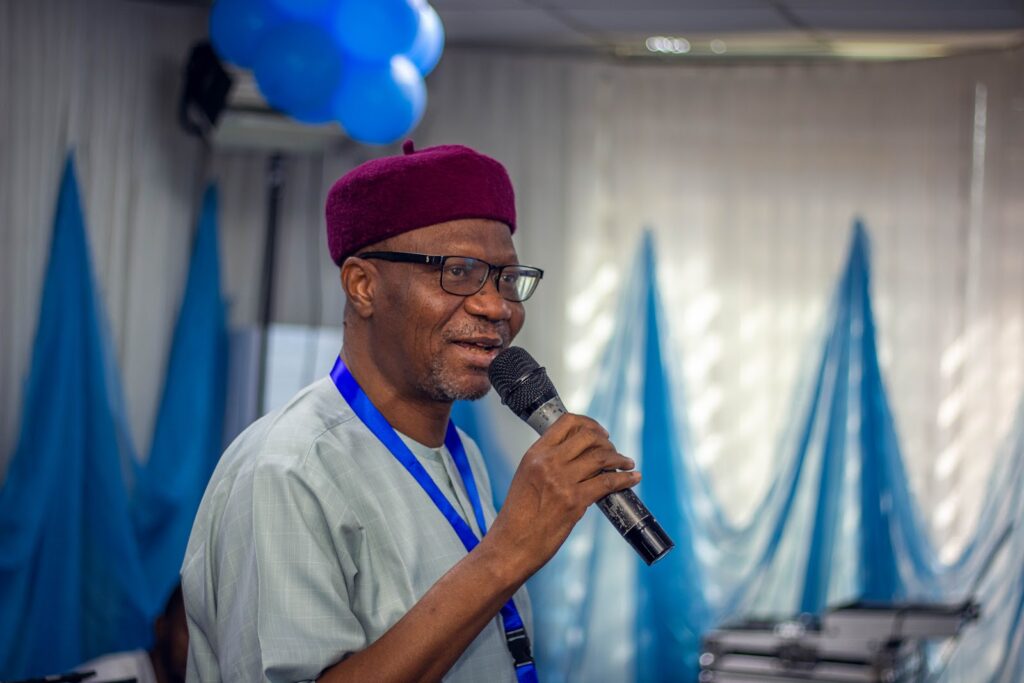
“Some of the things we are doing now may not have an immediate impact, but they will inform policy decisions in the near future,” he said.
Deji Adekunle of the Nigeria Media Innovation Program (NAMIP) added that HumAngle is doing important work serving underserved regions and people, stating that, “HumAngle has been able to take the lead in virtual reality storytelling. It’s been impactful work in the last four years, and I am proud to be part of the newspaper’s success story.”
Similarly, Qusai Alazroni of the International Committee of the Red Cross (ICRC) team in Nigeria underscored the importance of supporting the organisation. “They [HumAngle] have done a lot of work on missing persons in Nigeria, and that’s why we are here to support them. We are calling other partners to join us on how best to support families of missing persons,” Alazroni said.
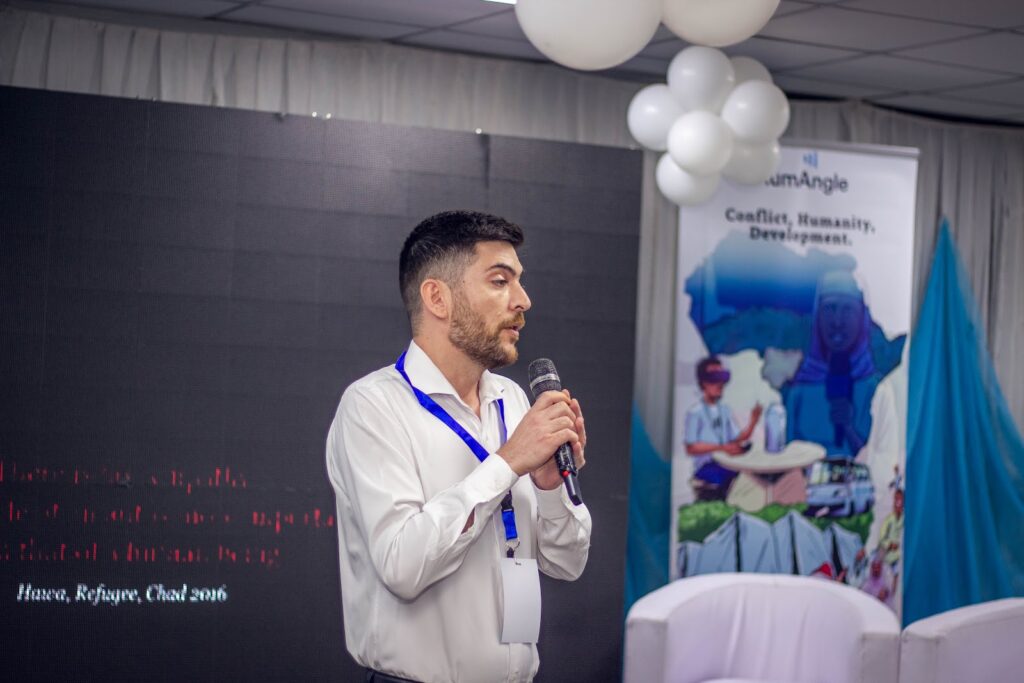
Abdulaziz Abdulaziz, a media aide to President Bola Tinubu, also advocated for HumAngle’s support. “HumAngle should be encouraged to do more as the platform has been able to look at security issues beyond the figures. Putting faces and voices to the figures we hear, telling stories of resilience and hope.”
Participants express satisfaction
The HumAngle Showcase received glowing reviews from attendees, who praised the organisation’s commitment to telling stories of the disadvantaged. Francois-Xavier Ada of United Nations Migration in Nigeria expressed his satisfaction with the event. “The excellent work and creativity on display are testaments of their passion for storytelling and commitment to raising the voices of the unheard,” he wrote on X.
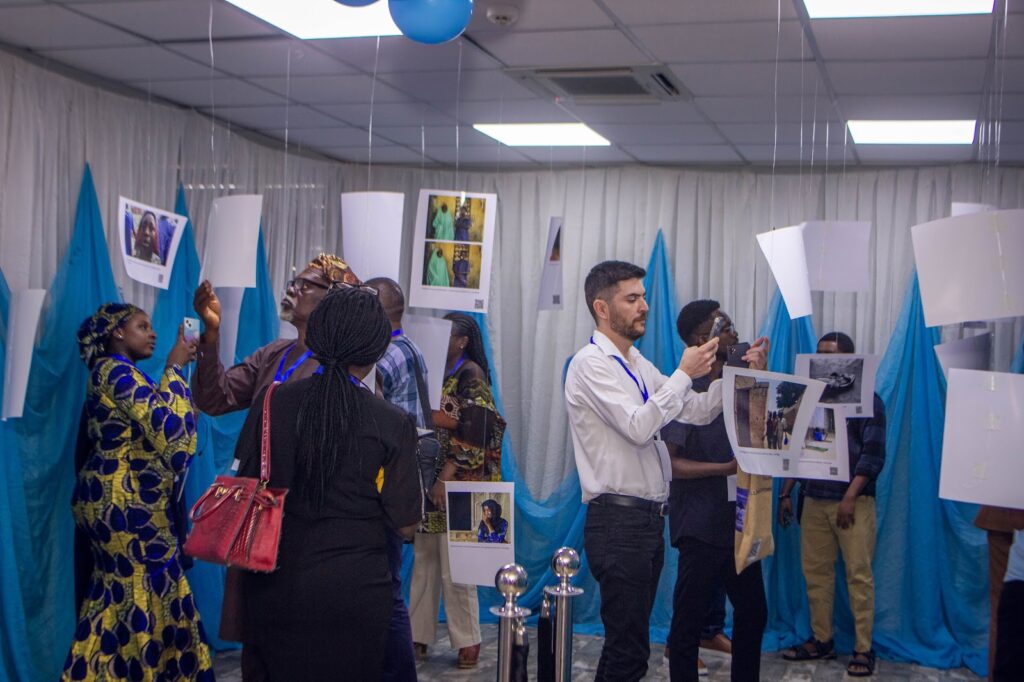
Samuel Jegede, a Media & Communications Coordinator at the Norwegian Refugee Council, also expressed his delight at being part of the event. “Great experience, I must say! Kudos to the team, HumAngle, for putting together this amazing show of work. Looking forward to opportunities to collaborate and portray stories as they truly are,” he tweeted.
Other participants echoed similar sentiments. Anaja Dorcas said, “Telling stories of conflict and dysfunction is no easy task, but I applaud HumAngle for their dedication, heart, and telling these stories with great dignity. Loved spending my Saturday with HumAngle at their showcase. From the panels to the impressive photo exhibition of their stories to the silent listening booth & Virtual Reality experience.”
